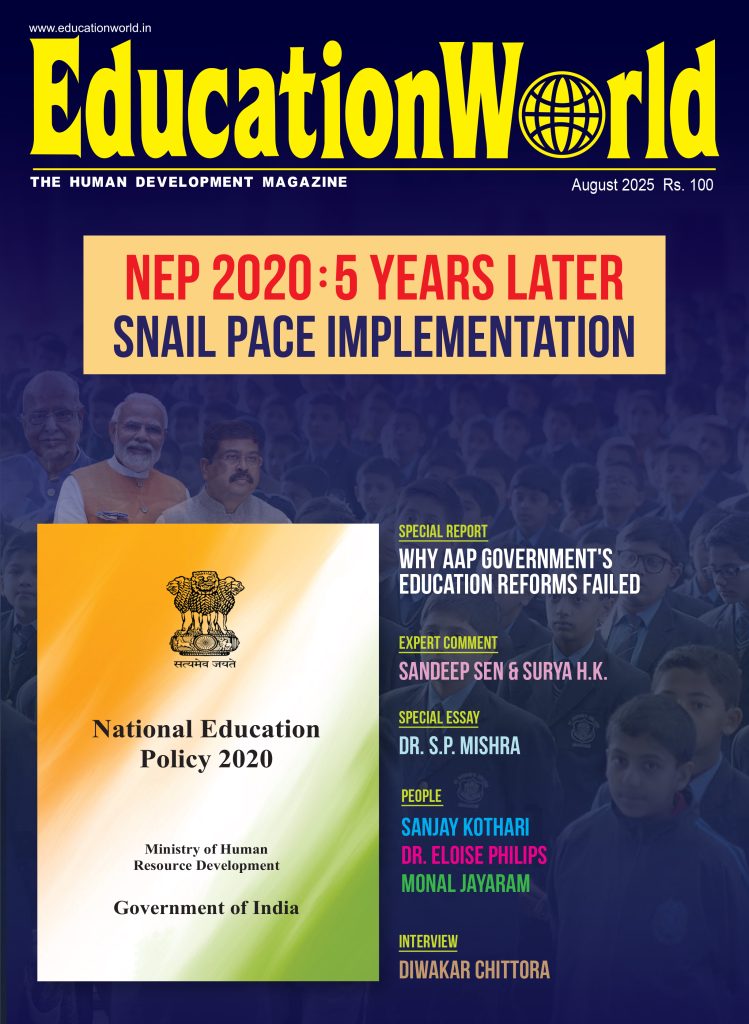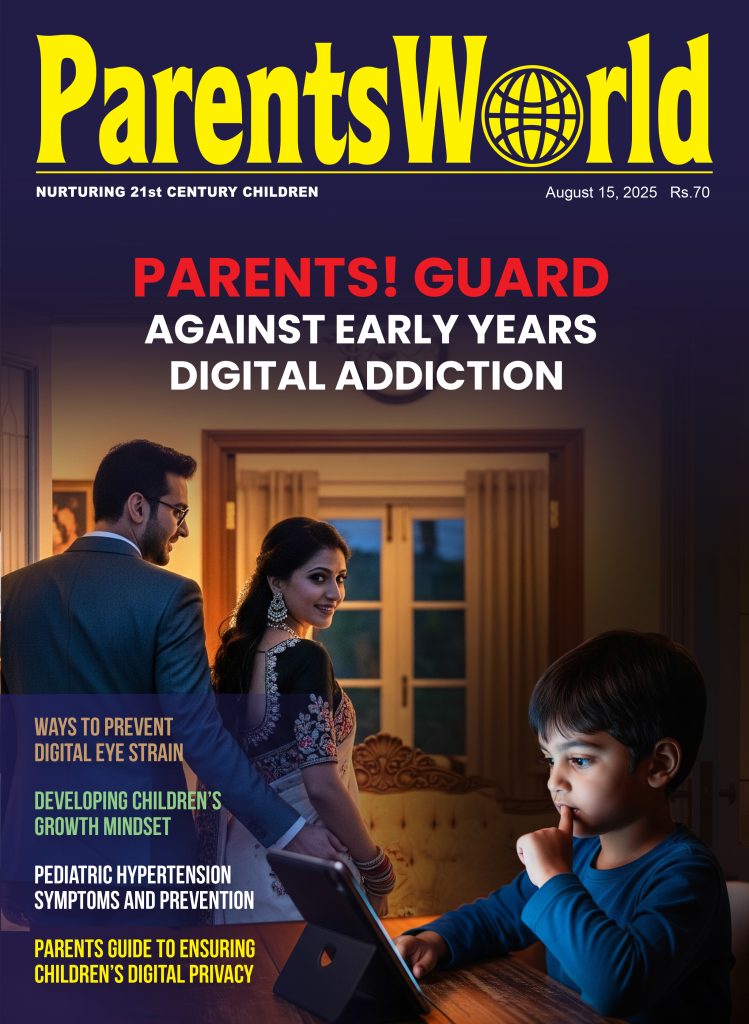Should ECCE become a Fundamental Right? – Dr. Niranjanaradhya V.P
Neurological research studies from around the world show that provision of age-appropriate education in the early years, plays a critical role in childrens brain development. In fact, infants begin to learn about the world around them during the prenatal, perinatal and postnatal period.
According to Unesco, Early childhood, defined as the period from birth to eight years old, is a time of remarkable growth with brain development at its peak. During this stage, children are highly influenced by the environment and the people that surround them. Therefore, professionally administered early childhood care and education (ECCE) is much more than preparation for primary school, it enables childrens social, emotional, cognitive and physical growth to build a solid and broad foundation for lifelong learning. Consequently, ECCE is the best investment a country can make to promote human resource development, gender equality and social cohesion, and to reduce the costs of subsequent remedial programmes.
India is a signatory and party to several international conventions that promote early childhood care and education. Among them is the United Nations Convention on the Rights of the Child 1989, which recognises all persons below the age of 18 years as children and provides for the basic rights of children which are fundamental to their development. India ratified the convention in 1992.
India has also signed Education For All (EFA) declaration (1990) which acknowledges education as a tool for development and emphasises the need for broadening the means and scope of basic education. Article V of the EFA declaration acknowledges that learning begins at birth and calls for early childhood care and initial education for all children.
Finally Goal 4.2 of the United Nations Sustainable Development Goals (2015) mandates that by 2030 all girls and boys should have access to quality early childhood development, care and pre-primary education so that they are ready for primary education.
Even way back in 1950, the Constitution of India recognised the significance of early child-care and development to attain the goal of national progress. To this effect, several provisions were made in the Constitution regarding the welfare and development of children including Articles 39 (e) and (f) and 45 of the Constitution which should be interpreted to include ECCE within their ambit.
More directly, Article 45 of the Constitution promised to provide, within a period of ten years from the commencement of the Constitution, free and compulsory education for all children until they complete the age of 14 years. Subsequently, the 86th Constitution Amendment Act, 2002, made a provision for early childhood care and education to children below the age of six years by amending the original Article 45. Thus the modified Article 45 reads as The State shall endeavour to provide early childhood care and education for all children until they complete the age of six years.
In continuation, the Right of Children to Free and Compulsory Education Act (RTE), 2009, was enacted to enforce the fundamental right to education of children but restricted it to children in the age group of 6-14 years which is now guaranteed under Article 21A of the Constitution of India and given parity with right to life itself. The Act also calls upon government to make provision for pre-primary education to prepare children for elementary education.
Subsequently, following sustained public pressure, in its last few months in office, the Congress-led UPA II government at the Centre formulated a National Early Childhood Care and Education Bill, 2013. Acknowledging the importance of ECCE, it provides for universal and equitable access to quality early childhood care and education for optimal development and active learning capacity of all children below six years of age.
Nevertheless, despite being a signatory to all these international legal treaties and the constitutional framework it has evolved, the Indian State has failed to provide universal ECCE to children. Therefore, there is an urgent need to harmonise the service standards and delivery norms of ECCE by public, private and aided pre-primaries. Effective implementation of the promises of successive governments to provide professionally administered ECCE requires institutional mechanisms to ensure governance and convergence. Therefore, to universalise ECCE and transform it into a fundamental right of all children in the 0-6 age group, I propose the following:
• Downward extension of the RTE Act, 2009, to cover children in 0-6 age group by amending Article 21A of the Constitution.
• Establishment of professionally managed creche facilities for children in the 0-3 years age group and full integration of pre-primary education of children in the 3-6 years age group with lower primary education by establishing Grade 0 (i.e, lower kindergarten, upper kindergarten in all primary schools).
• Effectuate the recommendations of the 259th Law Commission of India Report 2015 in a diligent manner.
In short, the answer to the question in the title of this paper, is in the affirmative. Indeed, universalisation of ECCE is the prerequisite of building the new India of which the founding fathers of the Constitution dreamed.
(Dr. Niranjanaradhya V.P is fellow, Centre for Child and the Law, National Law School of India University, Bangalore)

















Add comment